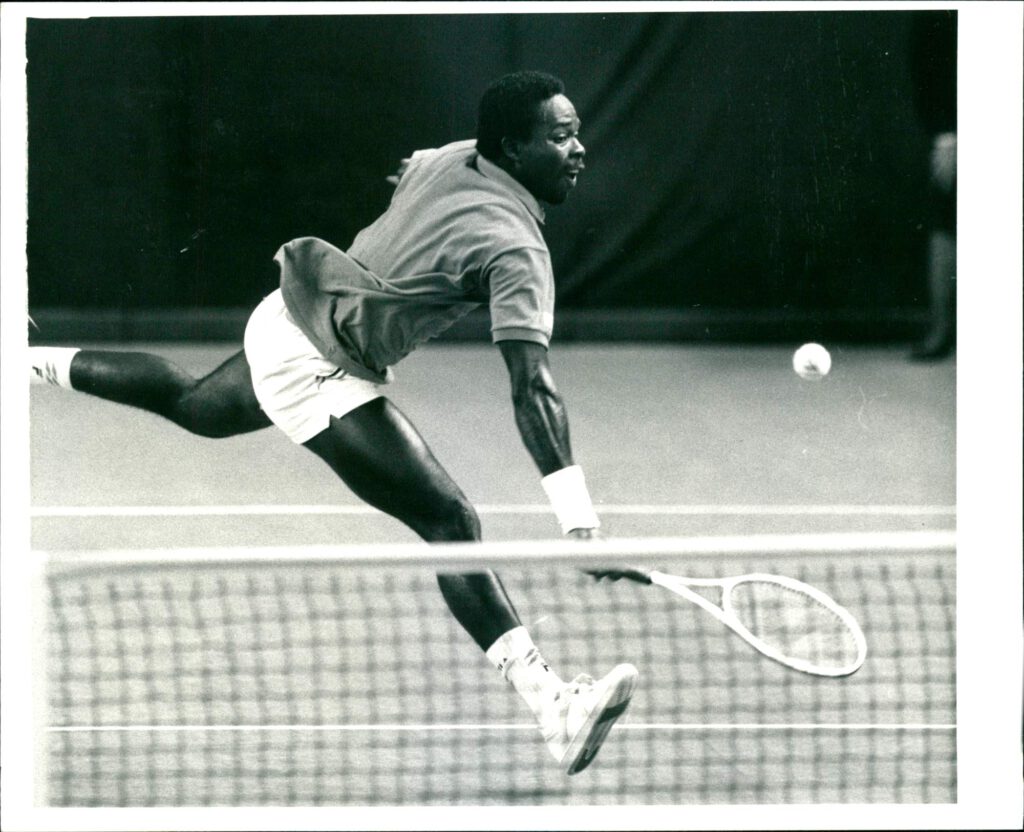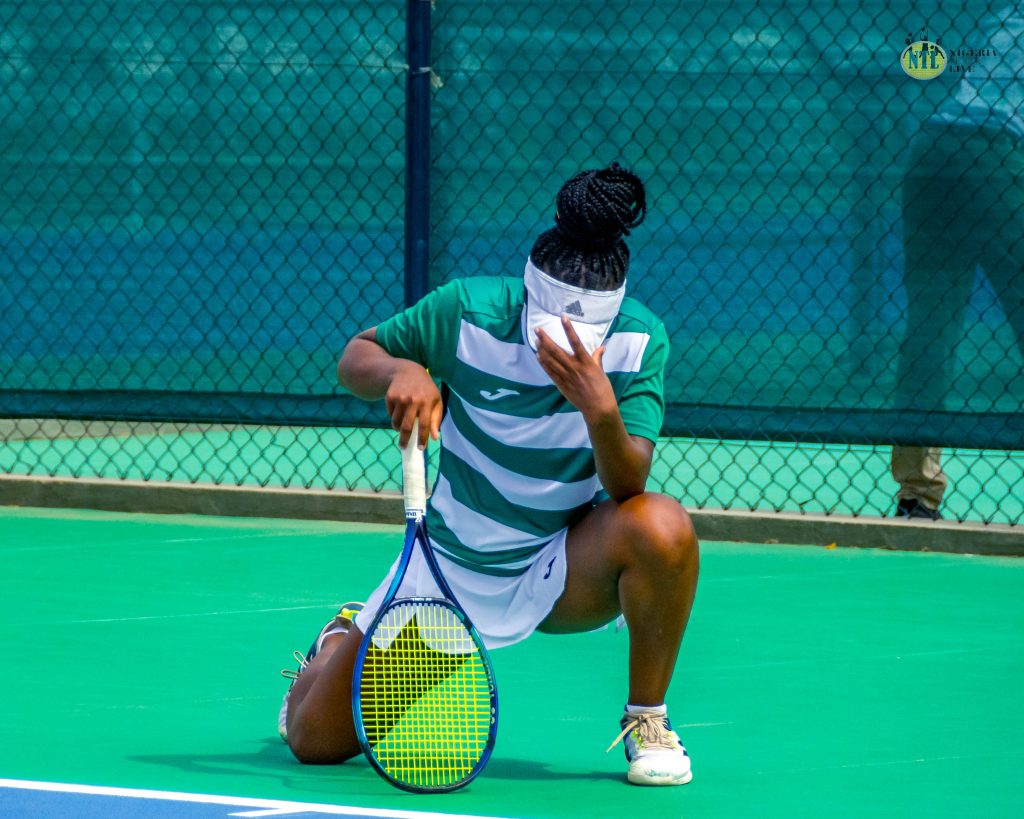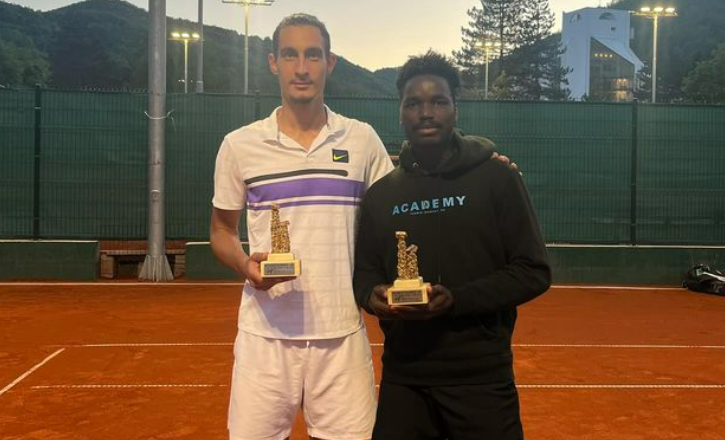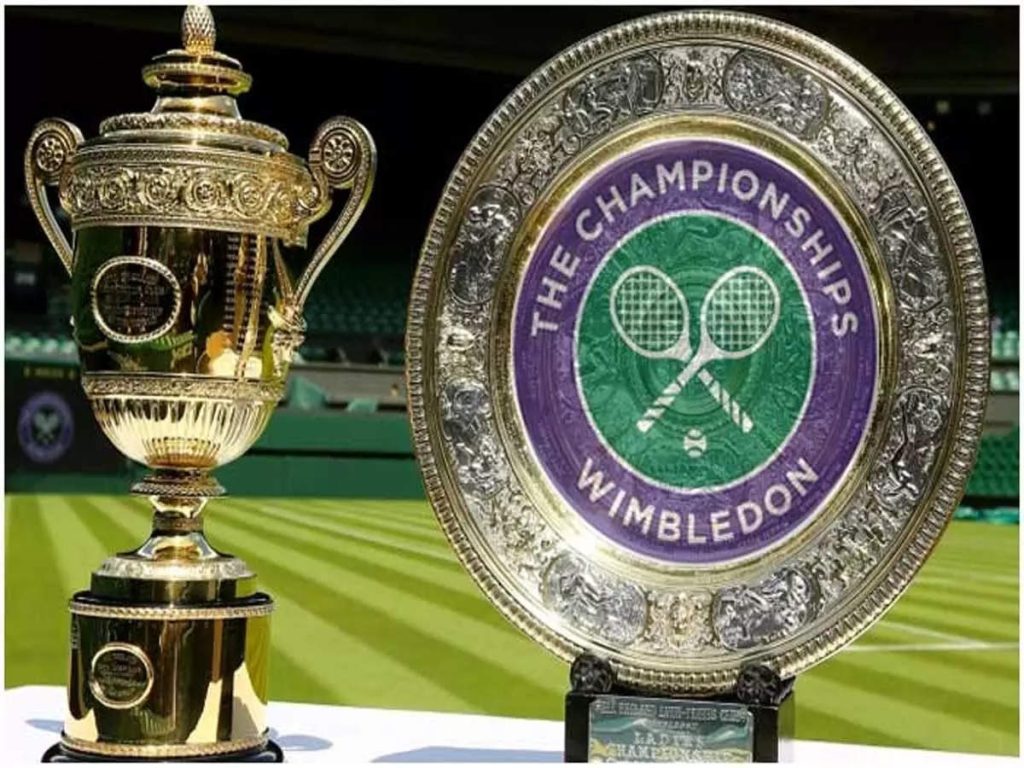The attention of the entire tennis world is turned towards the oldest tennis tournament in the world – the Wimbledon, an annual Grand Slam event.
There’s no telling how prestigious this tournament is, and how much tennis fans and players love to watch (either live or on television) the action on grass, as this competition, like other Grand Slams, keeps tennis lovers on their edge.
Nigerian players, most of whom can only dream of watching their favourites or superstars dig it out on the court at the All England Lawn Tennis and Croquet Club – where the Wimbledon Open is held, will keep wondering why they are not the ones doing justice to the balls.
Their questions keep begging for answers, as they keep soliloquizing on the good old days of David Imonite, Nduka Odizor, Tony Mmoh, among other super stars who were trailblazers during their hey days, and thinking tennis in the country has to be under some spell at the moment.
READ ALSO: Who Is The Highest Ranked Nigerian Player On The ATP Rankings?
Even though reaching Wimbledon (or other Grand Slams) qualifier or the main draw seems like a very unrealistic dream for these player, many Nigerian players still dream and believe they stand the chance to reach these events. But are they actually wrong to dream?
While it may be condescending to think no Nigerian player at the moment stands a chance at it, if that were the case, would it have been as a result of dearth of talents at the country’s disposal or the inability of these talents to reach these levels?

As cliche as this may sound, tennis is a very expensive sport which requires a lot of funding on many fronts, most important of which is to travel for competitions. But is tennis the only expensive sport there is around?
For starters, the likes of Oyinlomo Quadre and Christopher Bulus have shown, over the years, that they are two players Nigerians can put their money and resources on to excel and play at the highest level.
While Quadre has been conveniently defeating WTA-ranked players, Bulus is still hanging on as Nigeria’s only ATP-ranked player at the moment, and does not look like one who will face a set back from reaching his potentials anytime soon.
READ ALSO: Nigeria’s Bulus Hits Highest ATP Ranking Ahead Of African Games
However, these players, given the talents they possess and show on the courts always, are not far from the players that are in the top rankings, and this progress has come at a huge cost.
In 2022, Angella Okutoyi, the African Games gold medalist, won the Doubles event at the Wimbledon Juniors, but just two years earlier, she was unable to defeat Nigeria’s Quadre.
The Nigerian, a teenager at the time, defeated Okutoyi in two straight sets at the African Games to help Team Nigeria claim bronze medal at the Games in Morocco. So, Nigeria cannot be said to lack talents.
Today, the 20-year-old Kenyan is ranked 495 in the world and is being heavily tipped to represent Kenya at the Olympic Games in Paris, France, even though the possibility is slim, while the Nigerian is still struggling with sponsorships to attend major events.

While it is very expensive to get these players up there, it becomes ‘cheaper’ when they make it into the main draw of very big events like the Grand Slams.
For instance, first round losers at the 2024 edition of Wimbledon will pocket a massive £60,000 (sixty thousand pounds) which if converted to the Nigerian currency, runs into over N100m (one hundred million naira).
READ ALSO: NCAA Tennis: Oyinlomo Quadre And A Date With History In Oklahoma
And needless to say, the higher one goes, the ‘better’ it gets, and this is just one tournament out of the myriad of opportunities and tournaments out there.
While it is easier to look at what it costs to reach a Grand Slam event as being outrageous, it is also important (maybe more) to look at the possibilities that lie ahead of reaching that stage.
Therefore, what is stopping Nigerian players from reaching this level of competition which has a huge return on investment for possible sponsors?

Let’s say Nigeria is unable to organize ATP/WTA events, there are a number of competitions within the continent, especially up north, which Nigerian players can attend to rake in massive points, but this seldom happens.
And this, more often than not, is why most players from North African countries are able to reach the peak of their careers at a very young age.
READ ALSO: Oyinlomo Quadre: What Playing At The 2024 Olympics Will Mean To Me
This piece just torches the light on having sponsors see the light that lies at the end of their investments, and for Nigerian tennis lovers and followers to pay more attention to getting sponsorship for these players to grow in their chosen careers.
It is one thing to have talent, it is another to have sponsors, having both is bliss, but having talent without sponsors might just be more depressing than it appears.
On paper, it may appear like all talks, but in reality, there are chances that even if it is not now, in the nearest future, we shall be able to boast of having an actual Nigerian tennis player on the biggest stage again.

